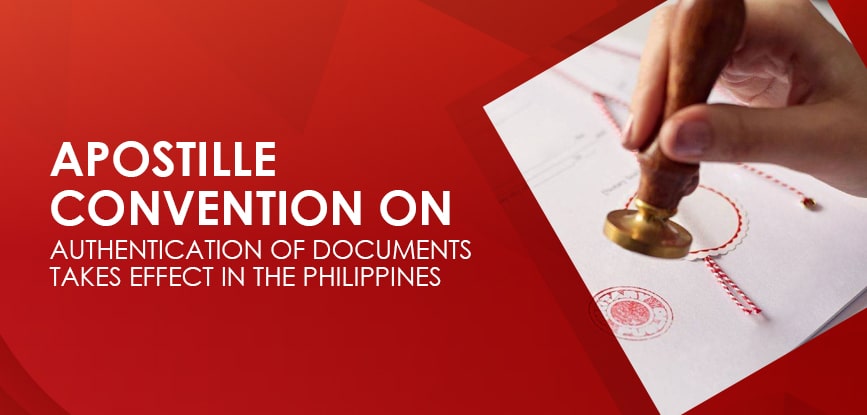
Apostille Convention on Authentication of Documents Takes Effect in the Philippines
The Department of Foreign Affairs (DFA) will no longer issue authentication certificates from May 14 onwards, following the Philippines’ accession as a state member of the Apostille Convention. The DFA will, instead, affix an Apostille to Philippine public documents for use abroad in other countries that are also signatory to the convention.
There will be no more need for authentication or legalization by concerned foreign embassies or consulates if the country of destination of the public documents is already a member of the Apostille Convention.
Public documents executed in Apostille-contracting countries (except for Austria, Finland, Germany, and Greece) that are to be used in the Philippines will no longer be authenticated by the Philippine Embassy or Consulate General once Apostillized.
However, the previous process of authentication will still apply in countries which are not Apostille-contracting parties. Authentication fees will remain at Php 100 for regular processing and Php 200 for expedited processing per document.
The Apostille Convention is an international treaty that removes the need for multiple certifications of the validity of public documents that are for use in another country or territory. This treaty is effective among its member states and removes the need for double-certification, by the originating country and then by the receiving country.
There are currently four types of eligible documents in the convention:
- court documents;
- administrative documents (e.g. civil status documents);
- notarial acts; and
- official certificates which are placed on documents signed by persons in their private capacity, such as official certificates recording the registration of a document or the fact that it was in existence on a certain date.
